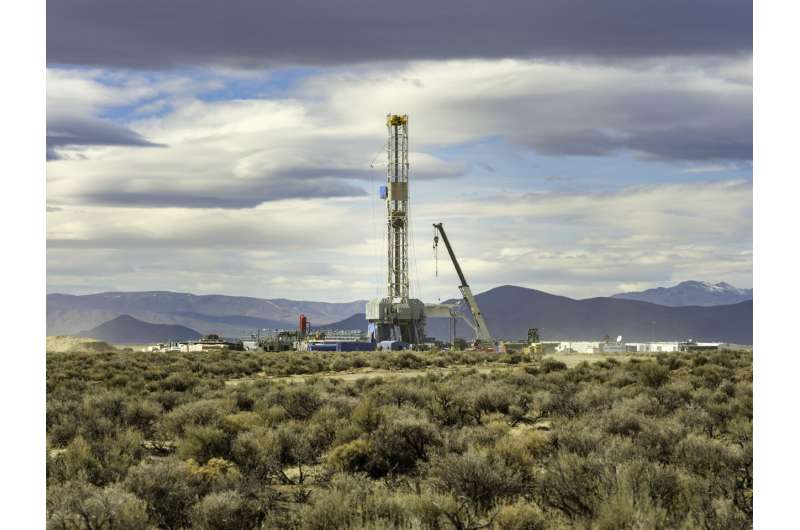
Enhanced geothermal systems (EGSs) are human-made or enriched reservoirs within the Earth's subsurface, from which heat can be extracted to produce geothermal energy. The energy produced by these reservoirs could serve as an alternative source of electricity, helping to mitigate carbon emissions.
So far, EGSs have been primarily viewed as potentially stable and reliable sources of electricity that could operate consistently over time. However, these geothermal reservoirs could potentially also store energy for longer before it is converted into electricity, rather than converting it all at a given point in time.
Researchers at Princeton University's ZERO Lab and EGS developer Fervo Energy recently carried out a study exploring the potential impact of utilizing EGSs flexibly and storing the energy they generate on long-term ongoing efforts aimed at decarbonizing electricity generation. The findings of their project were published in Nature Energy.
"This paper was a collaboration between my research group at Princeton, the ZERO Lab, and Fervo Energy, an enhanced geothermal systems technology startup," Wilson Ricks, co-author of the paper, told Tech Xplore. "The project was intended to explore the potential benefits of flexible operations for both EGS as an industry and for the decarbonized electricity grids in which it might participate."
The idea that EGSs could be operated flexibly has been around for decades and was first demonstrated in the 1990s. Yet climate change and ongoing efforts aimed at decarbonizing power systems have re-awakened interest in this idea, ultimately inspiring Ricks and his collaborators to carry out their study.
"The recent resurgence of EGS development and the increasing need for flexibility and energy storage in electricity systems with large amounts of wind and solar power inspired us to take a more thorough look at the benefits of this approach," Ricks explained.
"My co-authors and I first performed detailed simulations of EGS reservoirs undergoing flexible operations. We used these to develop an accurate representation of flexible EGS in GenX, the open-source electricity system planning model that the ZERO Lab develops and maintains."
GenX is an optimization model developed by researchers at Massachusetts Institute of Technology (MIT) and the ZERO lab at Princeton, designed to make predictions about electricity demand, generation and storage. The model works by identifying the least expensive configurations for the electricity system given a pool of available technologies and various physical and policy constraints.
As part of their study, Ricks and his collaborators specifically used GenX to explore how the flexible operation of EGSs could impact the long-run deployment of geothermal power in the Western United States. In addition, they set out to determine whether these flexible operations could reduce the costs of decarbonized electricity systems in the same region.
"We tried to represent the available geothermal resource base in as much detail as possible, mapping availability at various temperatures and depths across the region," Ricks said. "We also incorporated additional details like local hourly air temperature variability, which has an impact on the power output of some geothermal plants."
More information: Wilson Ricks et al, The role of flexible geothermal power in decarbonized electricity systems, Nature Energy (2024). DOI: 10.1038/s41560-023-01437-y.
© 2024 Science X Network
Citation: Study highlights the potential of geothermal power for decarbonizing electricity (2024, January 30) retrieved 30 January 2024 from https://techxplore.com/news/2024-01-highlights-potential-geothermal-power-decarbonizing.html
This document is subject to copyright. Apart from any fair dealing for the purpose of private study or research, no part may be reproduced without the written permission. The content is provided for information purposes only.
